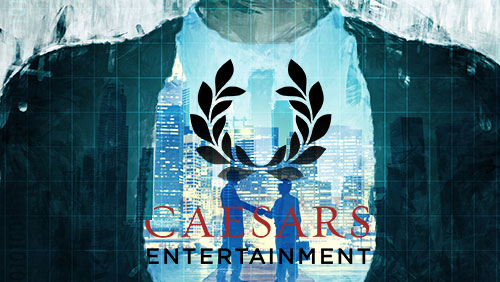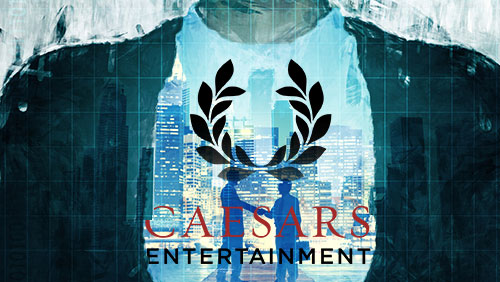It looks like Caesars may have finally squared the circle. According to press releases by the company and its myriad of subsidiaries both bankrupt and not bankrupt, all of the major creditor groups of Caesars Entertainment Operating Company (the “Bad Caesars” with all the debt) have agreed to a term sheet. Nothing has been signed yet, but they wouldn’t be putting out press releases of optimism unless they were sure they have already cleared the major hurdles.
In the words of the press release:
Representatives of the Ad Hoc groups of the First Lien Bank Lenders, the First Lien Noteholders, and Subsidiary Guarantee Noteholders, as well as the Official Committee of Second Lien Noteholders, have confirmed those creditors’ support for the term sheet, subject to the negotiation of and entry into definitive support agreements, and the Revised Plan of Reorganization to implement the agreed upon terms.
 Before we get into exactly what Caesars did here in a mathematical sense, the following is what they did practically. First, they separated all the good assets from the toxic ones so creditors couldn’t get at anything with actual value. That we all know and have for some time. Second, they dithered and slithered in courts for years to completely wear down the other side in a litigation war of attrition, knowing that as long as they could keep the case open and the courts constipated worse than someone on 24-hour opiates who has eaten nothing but hay for a decade, they wouldn’t be forced to actually cough up anything. So they milked that as long as they could in a financial siege. That clock ran out when the judge presiding over the case made an explicit threat to end the charade and force a deal not in Caesars’ favor if a voluntary deal was not reached by the end of September. It’s now the end of September, and it looks like we have one.
Before we get into exactly what Caesars did here in a mathematical sense, the following is what they did practically. First, they separated all the good assets from the toxic ones so creditors couldn’t get at anything with actual value. That we all know and have for some time. Second, they dithered and slithered in courts for years to completely wear down the other side in a litigation war of attrition, knowing that as long as they could keep the case open and the courts constipated worse than someone on 24-hour opiates who has eaten nothing but hay for a decade, they wouldn’t be forced to actually cough up anything. So they milked that as long as they could in a financial siege. That clock ran out when the judge presiding over the case made an explicit threat to end the charade and force a deal not in Caesars’ favor if a voluntary deal was not reached by the end of September. It’s now the end of September, and it looks like we have one.
Meanwhile, in the background during that entire time in the ongoing financial war of attrition using the public court system as a shield, Caesars began selling assets slowly to see what the minimum amount was that they could get away with paying without stripping itself too badly. They sold the World Series of Poker, and then Playtika to bring up their cash levels and tantalize the already exhausted creditors with the possibility of getting at least some money back and the prospect of no longer wasting their lives going to court. These people have families and lives. We often forget that when they’re just statistics on a paper. Caesars had 37% approval, and needed only 50% plus 1 to cut the deal. They offered a little bit more and then a little bit more piecemeal, until they reached that threshold by the hard deadline. And now we’re getting the press release, at the deadline.
The outline of the deal is as follows. First lien bank lenders get 115 cents on the dollar. The banks are always first in line to receive their money, of course. We live in a bankocracy after all. First lien bondholders get 109 cents on the dollar and $142 million in cash. Second lien bondholders, the real sticking point throughout all of this, get 66 cents on the dollar instead of 29 cents on the dollar due to a $345 million upfront cash payment added on at the last minute, plus 14.6% more equity in the new Caesars Entertainment Company. Unsecured creditors, also a big sticking point, get 66 cents on the dollar after increasing the cash offer and more equity in the new CEC.
Assuming all this is over now, should you buy Caesars? No. Markets have yet to open on Wall Street, but 5 hours before opening, Yahoo Finance is showing the Ask at $11.45. Yesterday’s close was $9.46. The bid is at $9.40 so we’re definitely going way up at the bell. It is generally a bad idea to buy into strength anyway, but in this case it’s especially dangerous. Unless you have read through the deal in its entirety and you’re a certified public accountant with an eidetic memory who dreams about balance sheets every night, it’s going to be very hard to tell exactly what the new merged entity’s debt position will look like and how fast it has to be paid off. Chances are it will be barely manageable but really not that great. Caesars has already had to sell off two of its best assets, which means there will be less life to support the remaining debt. In order to make a decision on this we’d have to see the end balance sheet, which we won’t have until the merger back into CEC is over and done. Let someone else play roulette here.
Caesars followers should closely monitor insider selling post merger. If the people at the top right now start bailing out of the new equity promised to the second lien unsecured creditors, you know there’s trouble ahead. Now that the worst is over, they may want to move on to something else because they’re pretty tired too after all this.
So it looks like Caesars will survive another day. The historical comparison to the Roman Empire ruled by the ancient Caesars though is almost uncanny. Rome split in two in 285, East and West. The West was the “bad” Rome, which quickly fell in 476. The East became the Byzantine Empire, which lasted until 1453. By splitting into CEOC and Caesars Acquisition, Rome’s namesake pretty much did the same thing, except now they’re doing a blood transfusion to reunite the divided empire and clear away some of the rotted detritus. But have they cleared away enough of it? It’s too early to tell.






